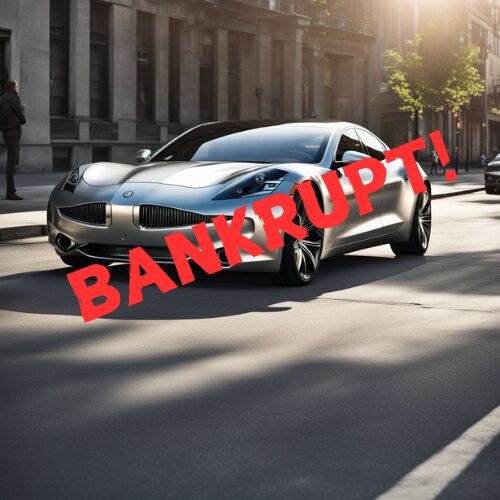In a world where financial decisions impact not only individual prosperity but the economic health of entire nations, the recent collapse of Fisker, Inc. serves as a stark reminder of the flaws inherent in Environmental, Social, and Governance (ESG) ratings. ESG ratings have been championed by progressives and big government advocates, yet their reliability leaves much to be desired. This collapse underscores the need for greater scrutiny of these ratings and the ideological agendas behind them.
Just last month, Sustainalytics assigned Fisker a “Medium Risk” ESG rating, equating it with the likes of industry giant Tesla. Remarkably, this rating came just weeks before Fisker declared bankruptcy, vaporizing nearly a billion dollars of investor capital. This glaring oversight highlights the most fundamental flaw in the ESG model: its failure to consider a company’s financial sustainability. If a company’s likelihood of bankruptcy isn’t considered, what is the true value of its ESG rating?
The inconsistent and often incoherent nature of ESG ratings further undermines their credibility. Consider how MSCI rated Coca-Cola “AAA” for ESG while giving PepsiCo “AA,” whereas Sustainalytics gave PepsiCo a lower risk score than Coca-Cola. Such disparities are not trivial; they reveal the subjective and often arbitrary components that make up these ratings, challenging the very notion of their utility.
ESG ratings often purport to measure corporate responsibility across various dimensions such as emissions, diversity, and worker rights. However, the reality is far more opaque. Investors, consumers, and businesses are left guessing what these ratings truly signify. Are they indicators of lower emissions, higher wages, or perhaps simply better reporting practices? The murkiness is deliberate, serving the interests of both environmental and social activists as well as government regulators who wish to dictate terms under the guise of promoting corporate responsibility.
High ESG scores frequently correlate with the quantity, rather than the quality, of voluntary disclosures. Researchers from prestigious institutions like Columbia and the London School of Economics have demonstrated that these scores do not necessarily reflect better corporate conduct or reduced risks. Instead, they often amount to a form of virtue signaling, masking the lack of substantial behavioral changes.
The politicization of ESG ratings is evident in how they can obscure serious governance issues within companies that adopt the “correct” stances on diversity, equity, and inclusion (DEI). Consider the governance structures at Meta and Alphabet: despite profound issues of control concentrated in the hands of a few, these companies maintain favorable ESG ratings due to their DEI policies.
The case involving Exxon Mobil and Tesla neatly encapsulates the farcical nature of ESG ratings. Exxon Mobil was favorably scored and included in the S&P 500 ESG Index, while Tesla—clearly a leader in low-carbon technology—was excluded for not producing a formal low-carbon strategy document. This subjective evaluation is a betrayal of the ideological purity that ESG purports to uphold and exposes how these ratings can manipulate investor choices.
The ultimate takeaway for investors is clear: ESG ratings cannot be trusted. These ratings are not only inconsistent but they provide activists and regulators a tool to impose an agenda that may not align with sound economic principles. The failure to predict Fisker’s bankruptcy is a stark reminder that ESG ratings often miss the mark on critical financial risk factors.
As citizens who value financial responsibility and limited government, we must resist any effort to mandate the use of ESG ratings in investment decisions. Doing so would not only risk capital but also divert focus from genuine economic performance. Anyone concerned with safeguarding their investments should scrutinize and question the validity of ESG assessments. For those with money to burn, investing based on these flawed ratings will likely result in contributing to the very inefficiencies and distortions they purportedly aim to resolve.



